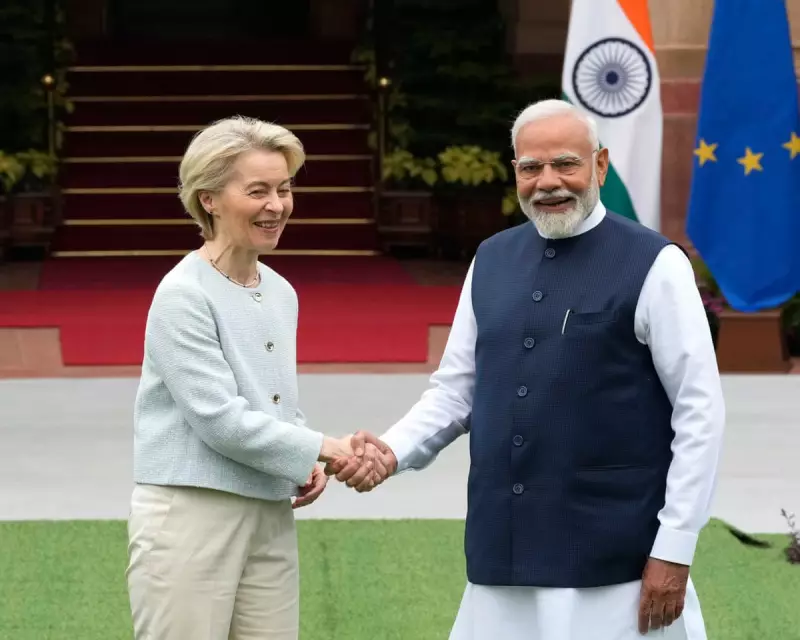
The European Union is making a bold diplomatic play to significantly deepen its ties with India, a move that requires navigating the complex reality of Prime Minister Narendra Modi's steadfast alliance with Russia.
Despite the stark contrast in positions on the Ukraine conflict, Brussels is pushing to finalise a sweeping free trade agreement and strengthen cooperation on critical security and technological fronts. This initiative underscores a pragmatic, long-term vision for the EU, which views the world's most populous democracy as an indispensable geopolitical and economic partner in the Indo-Pacific region.
A Delicate Diplomatic Balancing Act
Officials in Brussels are acutely aware of the elephant in the room: India's refusal to condemn the Russian invasion and its continued purchase of vast amounts of Russian oil. However, the EU's strategy appears to be one of engagement rather than confrontation. The belief is that drawing India closer through trade and investment offers a more sustainable path to influencing its stance over time, rather than isolating a key global player.
The Lure of the Indian Market
At the heart of the push is a long-stalled Free Trade Agreement (FTA). For the EU, a deal offers unparalleled access to India's massive and growing consumer market. For India, it represents a crucial opportunity to integrate more deeply into global supply chains and attract European investment and expertise, particularly in green technology and digital infrastructure.
The proposed partnership extends far beyond goods. A separate investment protection pact and an agreement on geographical indications—safeguarding products like Champagne and Prosciutto di Parma—are also on the table, highlighting the comprehensive nature of the proposed alliance.
Security and the 'China Factor'
Beyond economics, shared concerns about an increasingly assertive China are a powerful motivator for both sides. The EU sees India as a vital strategic counterweight in Asia. Enhanced cooperation on defence, maritime security, and cybersecurity is a key pillar of the proposed closer relationship, aiming to promote stability in the region.
This calculated move by the EU signals a mature, realpolitik approach to foreign policy, prioritising strategic interests and future potential over outright condemnation of a partner's existing affiliations.






